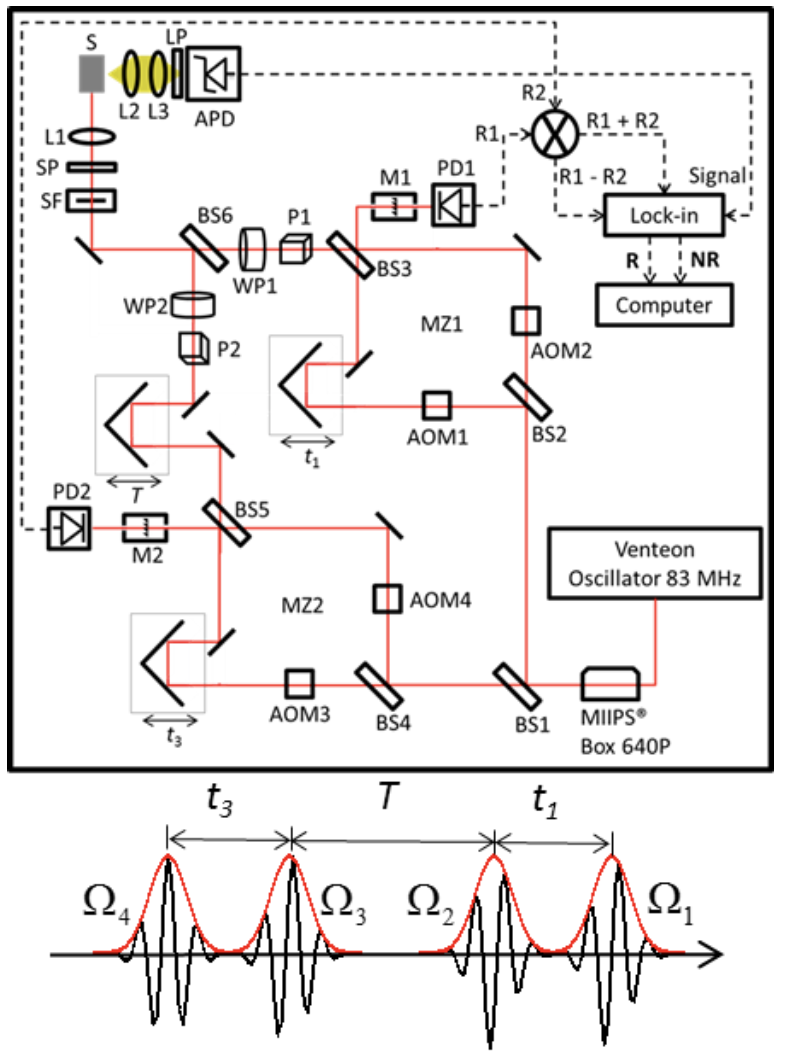Vivek Tiwari, Yassel Acosta Matutes, Akraprabha Konar, Zhanqian Yu, Marcin Ptaszek, David F. Bocian, Dewey Holten, Christine Kirmaier and Jennifer P. Ogilvie
Fluorescence-detected two-dimensional electronic spectroscopy (F-2DES) projects the third-order non-linear polarization in a system as an excited electronic state population which is incoherently detected as fluorescence. Multiple variants of F-2DES have been developed. Here, we report phase-modulated F-2DES measurements on a strongly coupled symmetric bacteriochlorin dyad, a relevant ‘toy’ model for photosynthetic energy and charge transfer. Coherence map analysis shows that the strongest frequency observed in the dyad is well-separated from the excited state electronic energy gap, and is consistent with a vibrational frequency readily observed in bacteriochlorin monomers. Kinetic rate maps show a picosecond relaxation timescale between the excited states of the dyad. To our knowledge this is the first demonstration of coherence and kinetic analysis using the phase-modulation approach to F-2DES.
